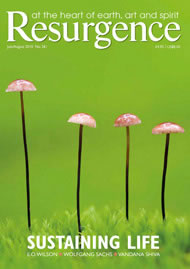Dame Jane Goodall is perhaps best known for her work in saving chimpanzees in Africa. Although she remains involved, much of that practical work ended almost 20 years ago, and indirectly this new book reveals the extent of her contribution as a global leader in wider Nature conservation since then.
The approach taken is not one of self-aggrandisement. Instead the book features and connects the heroic efforts of many other individuals, highlighting their work with communities in saving endangered species around the world. This is achieved through collaboration with Cincinnati Zoo director Thane Maynard, and co-author Gail Hudson, who has written extensively about the link between human action and the health of the world.
Goodall now invests the majority of her time when at home in Bournemouth, England in speaking to dedicated conservationists around the world. Often, inspired by their stories, she will make a visit to experience the projects at first hand. Then there is the invitation to speak.
Such an occasion is recaptured in Maynard’s foreword. His own ‘field notes’ are a highly creditable asset to the book, but his most captivating contribution comes at the outset when he tells how the revelation of ‘Jane’s Feather’ in the middle of a sold-out lecture in a basketball arena gave birth to the idea for this book:
“Reaching behind the podium, Jane slowly pulled out the largest feather I’d ever seen… It was a primary feather from a Californian condor, the most endangered animal in America. She told the enthralled audience she carried it with her for inspiration because it reminded her not that the magnificent creatures were disappearing, but instead that many species are coming back from the brink of extinction. Thanks to the hard work of a great spectrum of experts, activists, students, and enthusiasts, the California condor is flying again.”
The book is organised as a collection of stories in five parts. Part 1, Lost in the Wild, is about six mammal and bird species that actually became extinct in the wild. In one example, we read in some depth about the Red Wolf Recovery Program, which works with landowners and the community in North Carolina and which in 2007 won America’s highest conservation honour.
Part 2, Saved at the Eleventh Hour, illustrates how many different species, including the golden lion tamarin of Brazil, were given a second chance. Here we find the story of Devra Kleiman, who has devoted much of her life to the species, but who knew that the key to longer-term success would be in handing over to the Brazilians.
In the third part, about species that have not yet been re-established in the wild, leadership character comes to the fore in headings such as Never Giving Up and The Heroic Struggle to Save Our Island Birds. Spectacular amongst these tales of extraordinary men and women is the story of the 35-year struggle by Hiroshi Hasegawa to save the short-tailed albatross on Torishima Island, Japan. The final collection of stories, The Thrill of Discovery, reports on those new species discovered or rediscovered.
But that is not all. Part 6, The Nature of Hope, reminds us that the lack of suitable wild habitat such as tropical and old-growth forests, wetlands, prairies and deserts is holding back release from captive breeding. What is the point of saving endangered life forms, people asked, if there is nowhere for them to live except in zoos?
It is in the introduction to this last part that the guiding leadership spirit of the book is captured. Here, Goodall explains her “four reasons for hope”. These are “our quite extraordinary intellect, the resilience of nature, the energy and commitment of informed young people who are empowered to act, and the indomitable human spirit”.
These stories are woven together in such a way as to illustrate subtly how effective leadership is so much about making connections. Here the connections are between scientific knowledge and volunteer dedication, between personal courage and compassion for other people and species, between communities and conservation of what is rare and beautiful, sustaining us all both physically and spiritually.







